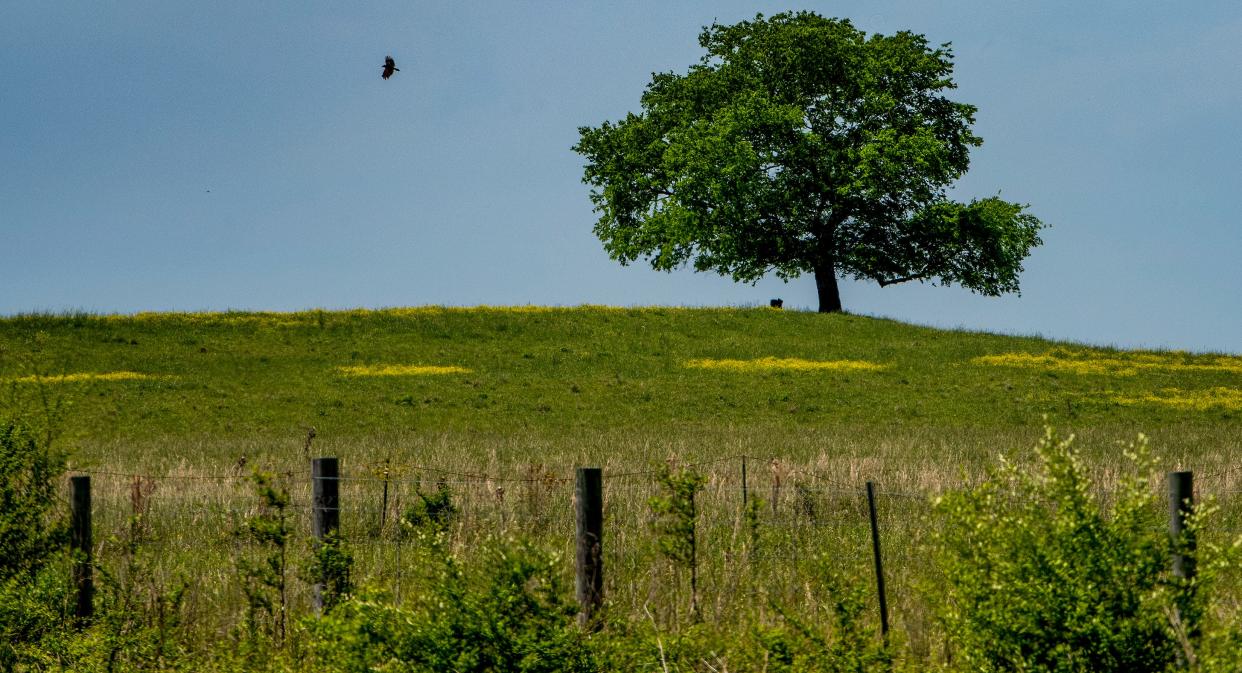20 years in the making: Black Belt named National Heritage Area

- Oops!Something went wrong.Please try again later.
Fertile black soil, sprawling farm land sprinkled with strong communities and a history filled with both disenfranchisement and empowerment during some of the United States’ most pivotal times.
These things make up the Alabama Black Belt, and they are why residents and their representatives have been pushing for the creation of the Alabama Black Belt National Heritage Area for the past two decades.
As of Friday, those advocates have succeeded. President Joe Biden signed the National Heritage Area Act into law, which in part creates the national designation for the region.

In 2004, the Alabama Black Belt Heritage Area Task Force formed to investigate whether the area was worthy of the designation; by 2009, the answer was a clear “yes.”
U.S. Rep. Terri Sewell, who represents several Black Belt counties, first filed the House bill as the Black Belt National Heritage Area Act on May 13, 2021. That same day, U.S. Sens. Tommy Tuberville and Richard Shelby filed an identical bill in the Senate. By the end of 2022, both passed.
“This is a great example of how the federal government can work with local communities to ensure future generations have access to some of our country’s most historical and cultural sites,” Tuberville said in a statement.
Now, the area will be eligible to receive up to $1 million in federal funds annually for the preservation and protection of important sites in the Black Belt.
More:Defining the Black Belt: How the expansive region shaped Alabama history

“For the first time, many historic areas in the Black Belt will be designated as a National Heritage Area, freeing up additional federal resources for historic preservation, tourism, and economic development. Passage of this bill is the culmination of years of tireless advocacy and negotiation on behalf of the residents of the Black Belt,” Sewell said in a statement. “As a proud daughter of the Black Belt, I’m thrilled that this region will be getting the national recognition it deserves, and I remain endlessly grateful to my colleagues for their support in this worthwhile endeavor.”
The University of West Alabama and the National Park Service will collaborate on a “strategic management plan” to determine how to utilize the annual funds to the best benefit of the region.
Tina Naremore Jones, vice president for economic and workforce development at the University of West Alabama, said the designation and the funding solidifies the Black Belt’s place and value in U.S. history.
“Our new heritage area will not only provide a platform in which to showcase the rich culture, history and natural resources of the region, but it will ensure a space in which we can all learn and appreciate our shared heritage,” she said. “In addition, heritage areas generate positive economic impact by building local capacity through the leveraging of shared resources. At UWA, we look forward to building on the relationships that have formed as part of these shared efforts towards designation. This is an exciting day for our region.”
Beyond preservation work, the funds may be used for recreation, heritage tourism and educational projects. While the Black Belt has a deep, important history, many in the area feel that it is often forgotten.
From the Civil War to the civil rights movement, the Black Belt and its people have been at the center — in the Battle of Selma, in the Montgomery bus boycotts and countless other times.
“The Alabama Black Belt was named for its soil, but this region has also served as fertile ground for Black history and the Civil Rights Movement,” Southeast Regional Director for the National Parks Conservation Association Emily Jones said in a statement. “Civil rights leaders like John Lewis put blood, sweat, and tears into their work to organize and register Black voters here in the 1960s. Now more than ever, it’s imperative that we honor their contributions to the ongoing fight for the American right to vote.”
Moving forward, those who worked to create the Alabama Black Belt National Heritage Area hope to see at least one outcome: highlighting their home’s history.
Hadley Hitson covers the rural South for the Montgomery Advertiser and Report for America. She can be reached at hhitson@gannett.com. To support her work, subscribe to the Advertiser or donate to Report for America.
This article originally appeared on Montgomery Advertiser: 20 years in the making: Black Belt named National Heritage Area

